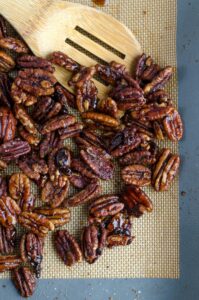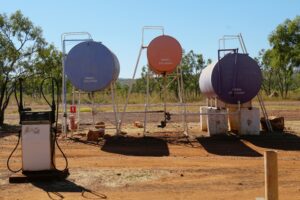Press release
This week, the National Council of Provinces is taking Parliament to the People in KwaZulu-Natal. The provincial economy will be the focus of discussion on Wednesday, 16 November with Minister Ebrahim Patel in attendance, and President Ramaphosa will deliver a keynote address on Friday, 18 November. SA Canegrowers and other industry stakeholders will be in attendance and will use the opportunity to call on national government to eliminate the Health Promotion Levy that continues to put one million livelihoods supported by the sugar industry at risk.
With the province facing critical service delivery failures, compounded by the unrest in July 2021 and the floods in April 2022, it is critical that the President and Minister Patel intervene on the issue of the Health Promotion Levy to help preserve jobs in the embattled province.
Parliament is also visiting KwaZulu-Natal, the heart of the cane industry, at an especially precarious time. Tongaat Hulett Limited, which operates three sugar mills in the province, recently entered its South African operations into business rescue. The industry has repeatedly highlighted the economic impact of the Health Promotion Levy, which certainly had a role to play in the Tongaat Hulett crisis, revealing the magnitude of the risk it poses.
A report released by NEDLAC in June 2021 showed that the Health Promotion Levy cost the industry more than 16,000 jobs and R2 billion in its first year alone. At the same time, government has to date failed to provide any evidence that the tax has had a positive impact on obesity levels in the country.
Subsequent modelling commissioned by SA Canegrowers suggested that a further 16,000 jobs would be lost simply by maintaining the levy. Despite this troubling data, in February 2022 Minister Godongwana announced his intention to increase the levy, lower the threshold for its application, and extend it to fruit juices.
While this policy decision was subsequently delayed by a year, the crisis at Tongaat Hulett must serve as a warning to national government on the consequences of maintaining – let alone increasing – the Health Promotion Levy next year.
SA Canegrowers has worked closely with government and other industry stakeholders on developing and implementing the Sugar Cane Value Chain Masterplan to ensure the future sustainability and profitability of the sector. However, this plan will not succeed if the Health Promotion Levy remains in place, or even worse, is increased next year.
In order to ensure the future survival of the industry, and protect the livelihoods of the country’s growers, millers, and value chain partners, government must eliminate this job killing tax. The majority of the one million people in South Africa who depend on the sugar industry for their livelihoods live in KwaZulu-Natal. The Health Promotion Levy is therefore a critical part of any discussion about the provincial economy, and SA Canegrowers will use the opportunity of the People’s Parliament this week to speak up for those whose livelihoods remain at risk as long as the
Health Promotion Levy stays in place. We hope President Ramaphosa and Minister Ebrahim Patel, who will be attending the programme this week, will heed our calls and also call on National Treasury to eliminate the tax in next year’s budget.
Image by Joseph Mucira from Pixabay
Relevant Agribook pages include “Sugarcane“.



